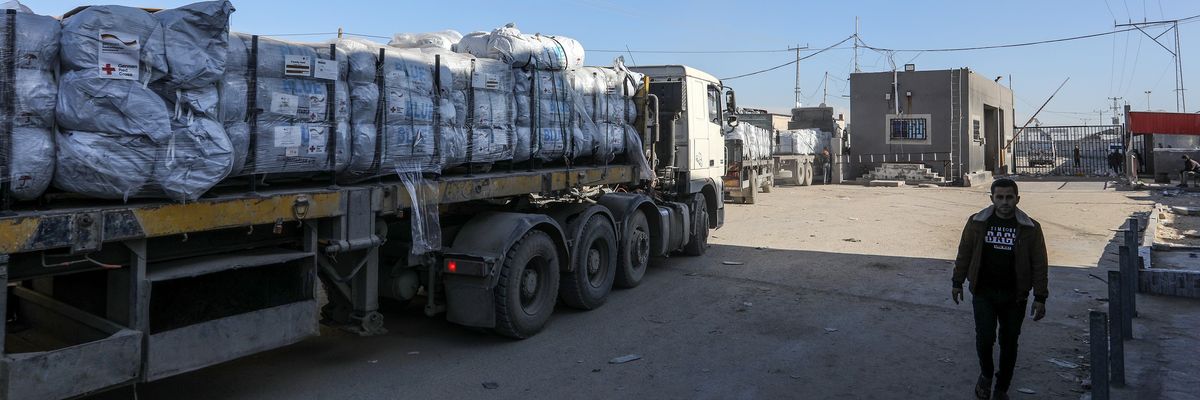With the level of humanitarian aid reaching Gaza residents perilously low and creating what one group last week called "famine-like conditions" throughout the enclave, the United Nations' top official overseeing relief for Palestinians on Tuesday condemned Israel's latest reason for blocking a shipment: It included medical scissors for caring for children.
Israel flagged the scissors as a so-called "dual-use" item, suggesting the government feared medical workers in Gaza—where more than 600 attacks on hospitals have pushed the healthcare system toward collapse—would use the scissors as weapons instead of to care for people who have been injured in relentless bombings.
"Medical scissors are now added to a long list of banned items the Israeli authorities classify as 'for dual use,'" said Philippe Lazzarini, commissioner-general of the U.N. Relief and Works Agency for Palestine Refugees in the Near East (UNRWA). "The list includes basic and lifesaving items: from anesthetics, solar lights, oxygen cylinders, and ventilators, to water cleaning tablets, cancer medicines, and maternity kits."
The truck carrying the medical kits and other items was turned back a day after 12 Israeli human rights groups condemned the right-wing government of Prime Minister Benjamin Netanyahu for openly violating an order from the International Court of Justice (ICJ) by continuing to obstruct humanitarian aid.
The ICJ issued an interim ruling in January saying that Israel was "plausibly" committing a genocide in Gaza and ordering the government to ensure the delivery of aid.
Mai El-Sadany, executive director of the Tahrir Institute for Middle East Policy in Washington, D.C., said Israel's latest move to block relief from reaching starving Gaza residents should eliminate any doubt that the government is flouting the ICJ's order.
The death toll from starvation in Gaza has now reached at least 25 people, mostly children. In what the International Rescue Committee called a "conservative" estimate late last month, at least 1 in 4 households—more than half a million people—are now facing "catastrophic or famine conditions."
Juliette Touma, director of communications for UNRWA, toldAl Jazeera Monday that a minimum of 500 aid trucks daily—the number that entered Gaza each day before the war—are needed to meet the needs of the civilian population. An average of 90 trucks entered the enclave per day in February, with the number as low as seven or nine on some days.
The World Health Organization said Monday that it had reached Al-Ahil Arab Hospital and Al-Sahaba Hospital in northern Gaza with trauma supplies to serve 150 patients over the weekend.
Medical teams there, however, still lack basic necessities to care for people, including "food, fuel, specialized staff, anesthetic drugs, antibiotics, and internal fixation devices," WHO chief Tedros Adhanom Ghebreyesus said.
George Washington University professor William Lafi Youmans condemned the blocking of the aid truck carrying medical kits as "deplorable" and "nonsensical."
Human rights lawyer Zaha Hassan of the Carnegie Endowment for International Peace said Israel's decision underscores the need for an immediate, permanent cease-fire in Gaza and an end to Israel's occupation of Palestinian territory including Gaza and the West Bank.
"Returning an entire truckload of humanitarian assistance because children's scissors were part of a medical kit," said Hassan, "is why there can be no end to the genocide of Palestinians without an end of Israel's control over Gaza."
